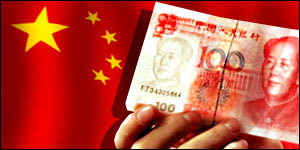As China grapples with an endemic corruption problem, the government announced that almost 150,000 people had been convicted for the crime since 2008. The highest-profile of these cases is Bo Xilai, whose life sentence was upheld by the Shandong High People’s Court today. From Reuters:
President Xi Jinping, who took office in March, has called corruption a threat to the ruling Communist Party’s survival and vowed to go after powerful “tigers” as well as lowly “flies”.
His latest crackdown has netted a handful of senior officials, among them former executives from oil giant PetroChina.
[…] Nearly 66,000 officials have been investigated for taking bribes and another 23,246 people for giving them, prosecutor-general Cao Jianming said, according to Xinhua news agency.
Despite China’s drive to rein in corruption, Cao told the country’s legislature that enforcement agencies were still understaffed. “Some of our investigators rely too much on confessions rather than evidence,” he said. [Source]
But as writer Lijia Zhang writes for CNN, corruption is so ingrained in day-to-day life in China, that it may be impossible to eradicate:
Much as I appreciate our president’s determination, his battle feels like an attempt to “put out a big fire with a glass of water,” given how corruption has reached every corner of our society.
Chinese public opinion surveys identify corruption as the most hated social problem, yet everyone is also guilty of it.
Last year, when my father fell seriously ill, we took him to a decent hospital close by but were told the beds were fully occupied. As always, we turned to our guanxi — our network of connections — for help.
Fortunately, a relative, a not so senior but well-connected official, managed to secure a private room at the hospital, which is reserved for ranking leaders. In return, the relative agreed to get the son of the hospital director into the most desirable school in Nanjing. [Source]
Calls for officials to publicly disclose their assets, as an anti-corruption effort, have been met with hostility from authorities. On a visit to China, Russian Prime Minister Dmitry Medvedev stated that such a move was considered “normal practice” for most governments. The Global Times issued a blistering response. From the South China Morning Post:
“Disclosing Russian officials’ personal assets has yet to effectively curb corruption,” a commentary yesterday run by the Chinese-language edition of the Global Times, under People’s Daily, the Communist Party mouthpiece, said: “According to Transparency International’s cleanliness ranking, Russia lags China by more than 50 spots. That speaks for itself.”
The commentary, by Shan Renping, a pen name for the paper’s chief editor, Hu Xijin, came after Russian Prime Minister Dmitry Medvedev addressed an online discussion hosted by Xinhua on Tuesday.
Medvedev was asked about Russia’s anti-corruption drive and for his thoughts on state leaders and officials declaring their assets. Medvedev talked of the challenges in curbing corruption in Russia, but said there was “nothing special” about officials disclosing their assets.
[…] “Hardly any information today in China is regarded as sufficiently authoritative,” the commentary said. “Publicly disclosing official assets is doomed to stir endless controversy … society would be dragged into uncontrollable ideological debates and chaos.” [Source]








